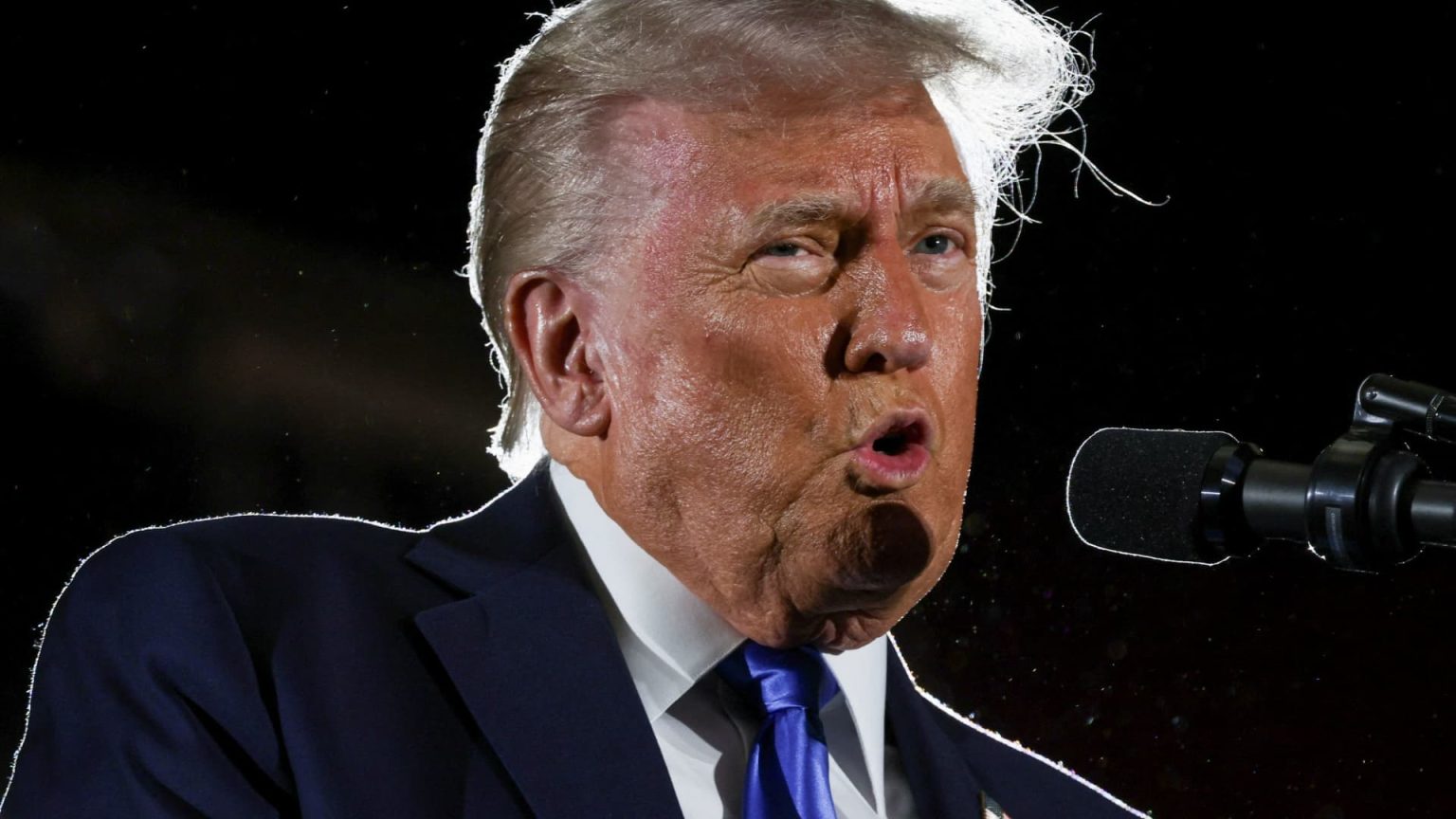In a recent interview, President Donald Trump reassured the public regarding the state of the U.S. economy, suggesting that any short-term challenges such as a potential recession would not hinder long-term growth. Despite increasing anxiety among analysts on Wall Street about economic conditions, Trump maintained a positive outlook, emphasizing a transformative phase in the economy. By discussing tariffs and trade policies, Trump attributed economic fluctuations to prior administration decisions, showcasing both confidence and a strategic narrative during a politically charged period.
| Article Subheadings |
|---|
| 1) President’s Optimistic Viewpoint on Economic Short-Term Challenges |
| 2) Wall Street Concerns Amid Tariff Policies |
| 3) Economic Data and Its Implications |
| 4) Trade Strategies and Their Impact on Prices |
| 5) The Political Landscape and Economic Messaging |
President’s Optimistic Viewpoint on Economic Short-Term Challenges
During a recent appearance on “Meet the Press,” President Trump characterized concerns over a potential recession as overblown, asserting that the long-term trajectory of the U.S. economy remains strong. When prompted by moderator Kristen Welker about the implications of a recession, he stated, “Look, yeah, it’s — everything’s OK.” This reassuring tone reflects Trump’s tendency to frame economic discussions positively, framing current conditions as merely transitional. His response encapsulated his broader narrative of economic resilience, suggesting that despite any immediate setbacks, the U.S. is on a path to exceptional growth.
Wall Street Concerns Amid Tariff Policies
Despite the President’s confidence, analysts on Wall Street are increasingly apprehensive about economic forecasts, particularly concerning the implications of Trump’s tariff policies on trade relations. Tariffs can lead to increased prices for goods and potentially impact consumer spending. Trump’s insistence that “some people on Wall Street say” that a robust economy is forthcoming clashes with the prevailing anxiety among investors who fear a downturn driven by escalating trade tensions, particularly with key partners like China and Canada. This dichotomy illustrates the divergence between political rhetoric and market realities, presenting a complex scenario for both policymakers and economic stakeholders.
Economic Data and Its Implications
Recent reports from the Commerce Department revealed that the U.S. economy contracted by 0.3% in the first quarter of 2025. This decline is attributed largely to a decrease in exports and an increase in imports, reflective of recent tariff announcements. Trump, however, deflected criticism, attributing these unfavorable numbers to the policies left in place by former President Joe Biden. During a Cabinet meeting, he stated, “That’s Biden… because we came in on January, these are quarterly numbers.” Such statements serve to minimize perceived accountability and allows Trump to sustain messaging aimed at distancing his administration from inherited economic difficulties.
Trade Strategies and Their Impact on Prices
Trump’s administration has pursued a controversial trade strategy, imposing significant tariffs on imports from multiple countries. The president has notably paused the introduction of larger tariffs, allowing for a temporary market rally. However, while he has raised tariffs on China to unprecedented levels, insisting that the strategy will yield positive results, the administration has been criticized for downplaying potential impacts on consumer goods’ prices. Trump noted, “Somebody said, ‘Oh, the shelves are going to be open.’ Well, maybe the children will have two dolls instead of 30 dolls.” This comment illustrates the administration’s attempt to frame potential shortages or price increases as minor inconveniences rather than significant threats to economic stability.
The Political Landscape and Economic Messaging
As election cycles approach, the political implications of economic messaging become increasingly relevant. The president’s optimistic proclamations serve dual purposes: to reassure the public during challenging economic times and to bolster support among his political base. By framing current economic conditions as temporary and largely the result of prior administration failures, Trump aims to solidify his standing as a transformative figure in U.S. economics. The narrative not only attempts to calm public fear but also seeks to galvanize his supporters around the principle that his policies will ultimately result in historical economic recovery.
| No. | Key Points |
|---|---|
| 1 | Trump reassured the public about the economy, emphasizing long-term growth despite short-term challenges. |
| 2 | Concerns from Wall Street analysts indicate rising fears of a recession linked to tariff policies. |
| 3 | Recent data revealed a contraction in the U.S. economy, which Trump attributed to the previous administration. |
| 4 | Trump’s trade policies, including increased tariffs on imports, are a focal point of economic debate. |
| 5 | The political landscape plays a crucial role in shaping economic messaging as elections approach. |
Summary
In conclusion, President Trump’s commentary on the economy highlights a complex interplay of optimism and concern as the U.S. faces challenges both in economic performance and public perception. His remarks seek to cast a narrative of transformation, despite indicators suggesting possible downturns influenced by his policies. As stakeholders navigate the turbulent economic landscape, the effectiveness of Trump’s messaging will be tested in both financial markets and the political arena.
Frequently Asked Questions
Question: What are the potential impacts of tariffs on consumer goods?
Tariffs can lead to increased prices on imported goods, affecting consumer purchasing power and availability of products.
Question: How does President Trump attribute recent economic data to his predecessors?
Trump has repeatedly stated that unfavorable economic metrics are a result of policies implemented by former President Biden, distancing his administration from responsibility.
Question: What is the significance of the economy in election cycles?
The state of the economy is critically important during elections, as it can influence voter sentiment and determine political capital for incumbents or challengers.


